Articles
Explore breakthrough technologiesWhat are articles about?
Quick to read and future-facing. Great for contextualising the future of technologies and breakthroughs. By reading our speculative interviews with expert academics you can explore our thematic foresight research. Our content stretches broad topic areas from food to data privacy.

TF 2043 Humans in the Futures Loop
Younger generations coming into power today have a problematic inheritance: the legacy of the problems caused by preceding generations and technologies that do not reflect more modern thinking. In this blog we set out to explore the area of different human values being ‘baked into’ technologies. When humans are 'in the loop’ of technology driven decision making, what are their interests and who is being left out? read more

The Futures Triangle of IoT
The slow-moving wave of the Internet of Things (IoT) continues as more and more consumer-facing technologies, such as doorbells and heat-pump, are deployed. The acceptance, and expectation, of internet connectivity in products and service offerings are increasing for people and businesses. read more
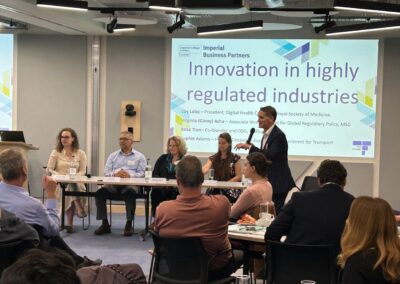
Innovation vs regulation: Friend or foe?
“Regulation and innovation go hand in hand together. At Imperial College, we work on a lot of deep technologies where regulation is a key part of the journey. Getting that mix between innovation and regulation right is crucial.” - Dr Simon Hepworth, Director of Enterprise read more

Nature meets Future: Getting Past the Past – Technology Death
Most of the discussions about new technologies are about the possibilities that they open. At Imperial Tech Foresight, we are interested in a different point of view. read more

TF2042: Nature Meets Future
Imperial Tech Foresight looks at insights from the sciences of the natural world and how they bring new ideas for business over the next 20 years. Ideas that will help businesses overcome our increasingly wild and turbulent economic and political world. read more
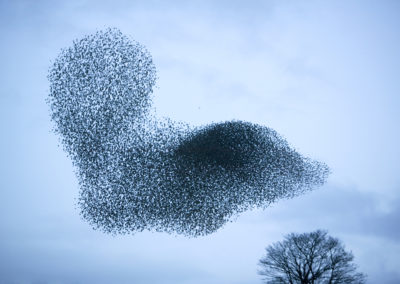
Nature Meets Future: Order and Disorder
The interplay of Order and Disorder defines the life of natural systems, businesses, and human society. Imperial Tech Foresight 2042: Nature Meets Future will use them to explore two different areas, the future of highly regulated industries and the evolution of digital commons in the next 20 years. read more
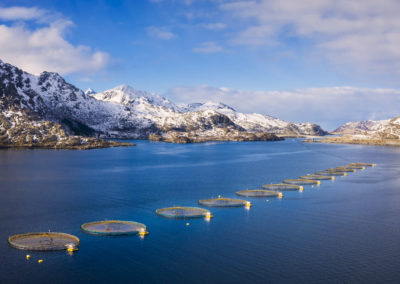
Nature Meets Future: Adaptation and Agency
Imperial Tech Foresight 2042: Nature Meets Future will explore two forces of change from the living natural world - Adaptation and Agency - to bring new views on the business challenge of biodiversity and insights into leadership. read more

Nature Meets Future: Life and Death
Imperial Tech Foresight 2042: Nature Meets Future will explore two fundamental patterns of the living natural world, Life and Death, to give new perspectives on business innovation and technology evolution. read more

Perspectives on the role of data in designing future societies
What if the data we generate wasn't just for companies to sell us things but for us to enrich our own lives and societies? Tech Foresight’s Claudio Sanna reached out to Professor Pierre Pinson for a conversation around the potential for data to help us rethink and improve ourselves, our societies and, as a result, our economies. read more

How will new technological shifts shape the future of agriculture?
Nowadays, de-globalisation is creating new order and new disorder* on a world scale, disrupting well-established supply chains and forcing human endeavours to adapt. While many areas are negatively impacted, good news is coming from the world of agriculture. read more
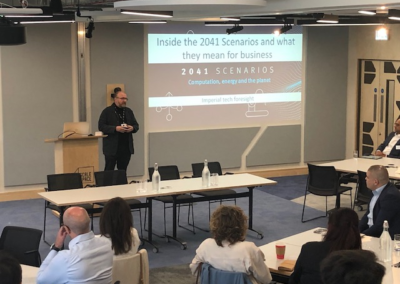
Going deeper: Exploring the 2041 Scenarios
Industry leaders and academic experts gathered with our foresight specialists to explore our 2041 Scenarios. Here’s an overview of what we learned. read more
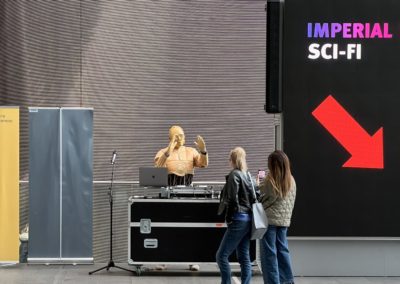
Fiction, foresight and fun: What happened when the public asked us about our Automated Futures map?
When Imperial Tech Foresight was invited to participate in the Imperial Lates “Sci-Fi” event held in South Kensington, we took our Automated Futures constellation to the people - and we loved what we learned about people's perspectives on artificial intelligence. read more

Risk, speculation, and future proofing : why low evidence in foresight can be a good thing
Future proofing is one driver for organisations to look ahead and beyond the horizon. Examining the future can be used for planning, strategy, de-risking, resilience and finding opportunities. De-risking the future through foresight calls for the inclusion of both evidence-based and speculative research. Let's look at uncertainty through the lens of a publicly available foresight project in the UK to understand the value of speculation. read more
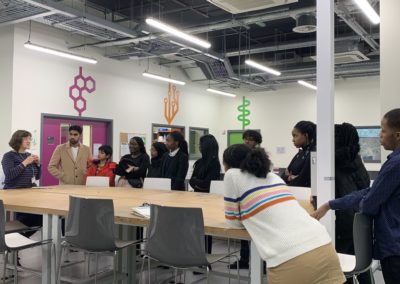
The fun of foresighting: Making it relevant for Gen Z and beyond
A couple of years ago, just after I joined Imperial and just before the COVID-19 pandemic disrupted everything (who’d have seen that coming? Well, let’s just say foresighting could have mitigated some aspects of it…!) I was invited to take part in a week-long initiative that the Enterprise Division delivered to engage with young people from BAME backgrounds, to highlight some of the different ways in which a STEMM education can lead to a range of careers. The programme – then run with Generating Genius but not brought in-house with our Outreach team – was a fantastic opportunity for me to test some of my foresighting techniques with 16-18 year olds, and it was a great way for them to test me on whether I knew what I was talking about. This year, we’re running a similar programme starting next week, and I wanted to share a few thoughts about why foresighting with young people is both a science and an art form, both for me and for them. read more

Disruption and the pharma industry: Too big to fail?
Disruption comes from different sources and can manifest in many ways. In this article, Imperial Tech Foresight explores what disruption is, how industries like the pharma sector might react to it and, more importantly, prepare for it. Quickly, a word about foresight. Foresight helps organisations to develop intuition about the future, accept the possibility of fast and radical change, and both prepare for and be resilient to this disruption. To demonstrate this, we present a future scenario for the pharmaceutical industry, where a paradigm shift in healthcare disrupts the incumbents in the area*. After that scenario we investigate the nature of disruption. *While presented as a thought experiment, emerging technology, current business practices and developments across society have been used to inform into this scenario. read more

Acting now for impact later: The importance of foresight for policy makers
Policymaking is essential to steer societies towards positive change. Good policies have comprehensive visions about the future embedded in them. For example, policies about renewable energy are based on the vision of a healthier planet. Short-sighted policy making often has dire consequences, compromising future generations’ opportunities for short-term gains. It’s difficult to decouple policy from political cycles, but in this blog, we explain with practical examples how foresight-led planning can have positive impacts both now and in the longer term. read more
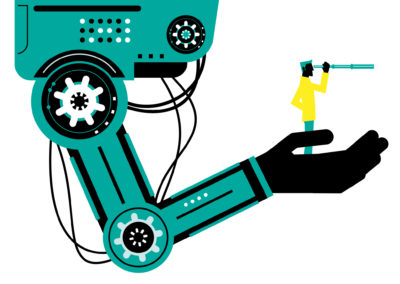
AI in action: Signals from automated scientific futures
Artificial intelligence (AI) is becoming for science what a Deus-ex-Machina is for literature. A device capable of resolving seemingly unsolvable problems in the story plot in an unexpected and unexplained way. Automated scientific discovery is, in a sense, the ultimate frontier of computation. A future where AI software can make discoveries, from unseen new molecules to novel branches of science, pushing beyond the limits of human intellect. How might the evolution of computation create a post-scientific world? What will this mean to our industrial world? read more

Entering the quantum era
Computers were invented less than 80 years ago, moving from huge machines occupying a whole room to devices that we can fit in our pockets in just a couple of generations. Today, humanity has embarked on a race to develop the next computing paradigm shift: quantum computers. These are devices that harness the properties of nature at the nanoscale to compute in a fundamentally new and powerful way. But what exactly are quantum computers? How do they work? And what do they promise? read more

What is the future of Electronics?
A new kind of electronic architecture, called the memristor, is paving the way for what might be next in electronics: Neuromorphic computing. It promises a new way to compute that is fast, energy efficient and allows to build truly intelligent hardware. But what is it, and how will it be used? read more
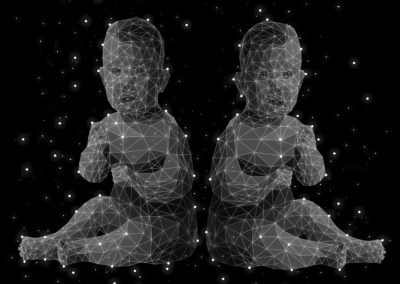
Digital twins: real time data in real world scenarios
A ‘digital twin’ is a virtual copy of an object, product, piece of equipment, process, supply chain, and much more that is updated in real-time. It comes alive through data derived from sensors that are attached to the original physical object or in its environment. read more

Battery-free devices? Are they possible?
In the last 20 years telephones have been cutting the cord from wired to wireless and now they may become never wired, thanks to novel technologies on the horizon read more
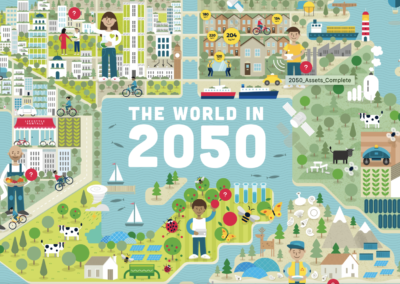
Making an idea come to life: The World in 2050
Imperial Tech Foresight has worked with Grantham Institute of Environment and Climate Change to develop vignettes of the future. They aim to point towards positive futures based on innovations from start-ups that have been supported by Climate-KIC. read more
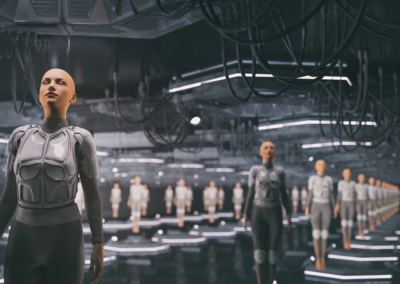
Do machines dream of automated tasks?
Whatever the future may bring, automation and increasing adoption of AI and machine learning will be a part of it. This feature provides a few insights into how we pulled together a constellation of an automated future. read more

Managing uncertainty: A foresight perspective
Learn how Imperial College London's expertise and insight can enable organisations to cope with uncertain circumstances by leveraging insights from relevant data beyond your normal field of vision. read more

Finding ‘weak signals’ from the future
Opportunity is all around, if you know where to look. But have you ever turned your gaze to signals of the future? One thing is true, we perceive change to come out of nowhere and more rapidly than ever before. Where does this perception of acceleration come from? Firstly, information is abundant, at the same time, it is hard to make sense of what really is relevant. There is simply so much going on. How can we separate background noise from important signals of change? read more

Lightbulb session – Agricultural Futures
What might be the future disruptors in agriculture? How might technology impact how we consider food? On the 12th February 2020, Imperial Tech Foresight was invited to share insights on the Future of Agriculture to the Agri-Business team at European Bank of Reconstruction and Development. read more
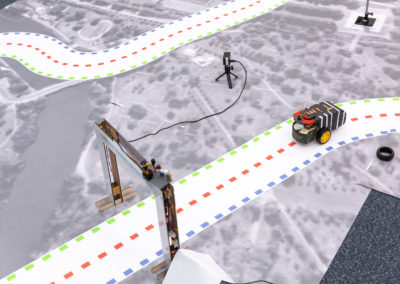
Next 20 years: Future governance – decentralised systems and new management
How may we govern organisations in the future, and what new organisational models will evolve from an increasingly decentralised yet interconnected world? One possible model, Distributed Autonomous Organisations (DAOs), is built on a distributed ledger that can coordinate tasks, information and resource allocation in an efficient, verifiable and permanent way. This very model is also behind what powers cryptocurrencies, which represent a new breed of organisations without the need for hierarchies. We wanted to find out how this decentralised model might impact organisations. read more
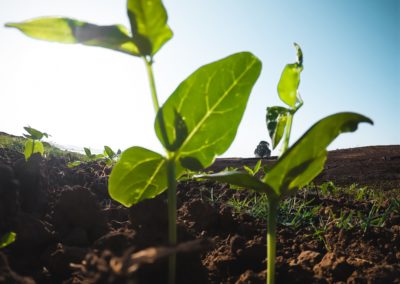
Next 20 years: Future sensing technologies
How might the development of low-cost smart transducers change the future of health, food and environment? Can we tackle food production inefficiencies and waste where it’s most needed? How can we envision the future of collaboration between research and industry? Imperial Tech foresight explored these questions with Dr. Firat Guder, Senior Lecturer at the Department of Bioengineering at Imperial College London. In the conversation, we found an advocate not just for new sensors but for progressive thinking in academics’ roles in bringing research to life to encourage local solutions to global issues. read more
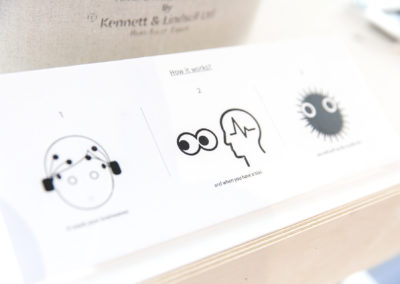
Next 20 years: Responsible engineering and design
The convergence of artificial intelligence, robotics, and big data is heralding a new Industrial Revolution. Every sector of society is being affected by these changes. Amid productivity increases, cost efficiencies and digital transformations, ideas around ethics and responsibility are becoming increasingly important, especially after numerous scandals and public breaches of data. But what does responsible technology mean? And how might this evolve over the next decade? read more
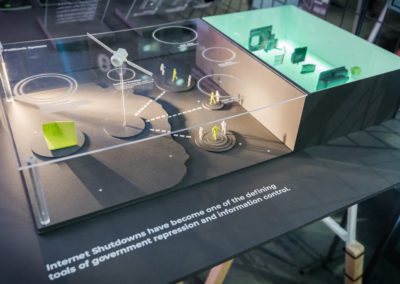
Next 20 years: Is privacy dead?
Over the past years, there has been public scrutiny of large organisations and their issues of privacy from media to singular whistle-blowers. As we allow more devices and systems into our lives; how might this impact us? What are emerging areas that might protect the individual? Imperial Tech Foresight wanted to find out more and met with Dr Hamed Haddedi to discuss the future of user-centred systems, privacy and human-data interaction. read more
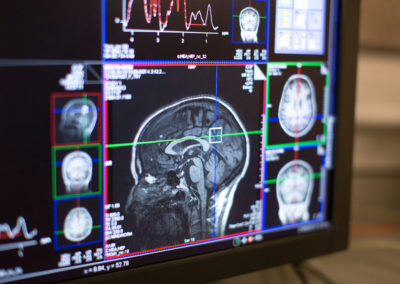
Next 20 years: Bionic devices and living electrodes
Bionic devices have been more prominent in the public eye after entrepreneurs like Elon Musk have publicised their visions on the future impact they might have. But what really is the future of bionic devices and how might they help people living with conditions like deafness and blindness? read more

Malleable matter: shaping disruption through matter
The third and final session of the Intentional Creations virtual conference – Malleable Matter, on Thursday 25 June 2020 – looks at the limitations, or opportunities, of the materials underpinning the technology itself. read more

Moral Machines: Ethical considerations for the future
The second session of the Intentional Creations virtual conference – Moral Machines, on 18 June 2020 – explores the impact of technology and AI on us as humans and on society as a whole. read more

Meta-Motivation: An ode to tackling uncertainty
The first session of the Intentional Creations virtual conference – Meta-Motivations, on 11 June 2020 – tackles that concept head-on. What would the world look like if we took an intergenerational perspective? What might be ideas that help us during this uncertainty? How can we take a longterm perspective? read more
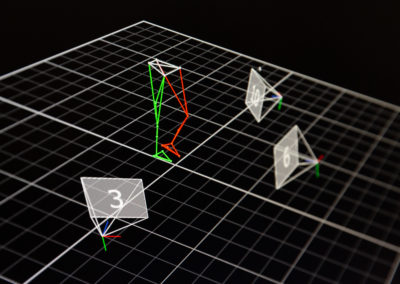
Lessons from a creative mind
On the 11th of April, British mathematician John Conway, most famous for his invention of the “Game of Life”, passed away in a nursing home in the US, where he spent most of his career at Princeton University. Tech Foresight wants to remember his great contribution to imagination, speculation and mathematics. read more
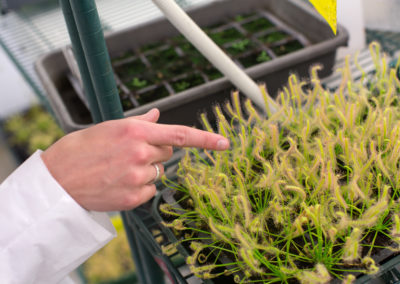
Food re-independence: Emerging thoughts
For many of us, this is the first time we have experienced the reality of empty shelves in the supermarket. After the governments advice to stay-indoors and only buy essentials, stockpiling commenced across Europe, exposing the very fragile food supply chains. read more
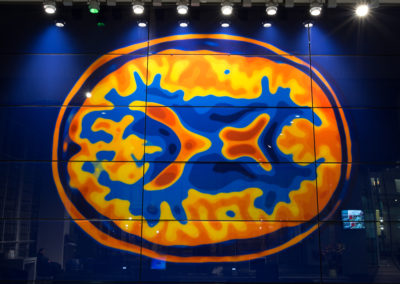
Emergent creativity to the pandemic emergency
One of the main publicised challenges faced during the COV-19 pandemic is the capacity for testing NHS staff and large numbers of people quickly. The main problems are the availability of tests and the time it takes from testing to result from the analysis. The current healthcare system was not ready for the demand. Researchers at Imperial College London are now tackling the issue, trying to find a low-cost and rapid testing solution. read more

Thoughts on uncertainty and COVID-19
Many have described the impact on COVID-19 across the world, and we are all living through the disruption of everyday life. As it is testing our economic, health and social systems, it reveals how our current global decision-making frameworks react to uncertainty. read more
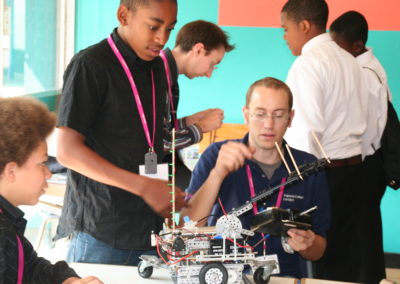
Tech Foresight at Generating Genius 2020
In February, Tech Foresight was invited to the annual Imperial College London event organized by “Generating Genius” (GG), a UK based organization whose aim is to raise the next generation of STEM leaders. read more

The future of scientific discovery
Could and should we be outsourcing our discovery to AI, and what does this mean for scientific discovery and creativity? How can society prepare for future AI and human collaboration? read more

The 4D printing revolution is upon us
By building new responsive qualities into objects using 4D printing, we turn them into shapeshifters. Discover possible future applications as our physical realities become responsive. read more

High-performance decision-making
When it comes to visionary aims, such as improving the health of entire populations, decision-making is beset by challenges. Dr Katharina Hauck discusses the effects of high performance computing on healthcare interventions. read more

Unlocking the patterns of disease hidden in medical images
Visual perception is one area where humans excel, but what if a machine could match or even exceed our ability to discriminate objects and identify patterns in what we see? read more

No more toys: 3D printing grows up
3D printing has grabbed popular imagination. But the polymer printers widely available today are not the technologies that will transform manufacturing and mass customisation of products. read more

Transforming surgery with real-time multi-scale imaging
Every successful operation depends on surgical skill to navigate the body. Pre-operative scans play a critical role, guiding surgeons like a map. But these are just snapshots. What if the map could be updated live – and even zoomed in and out? Real-time, multi-scale imaging would give surgeons a ‘sat nav’ to precisely identify tissues, protect critical organs and even see beyond their scalpels before a cut is ever made. read more

Imaging the health of our planet
From the discovery of DNA to the identification of water on Mars, lab-based spectroscopy is fundamental to understanding the chemical composition of matter. But what if you could apply spectroscopy not to small samples but on a planetary scale? read more
